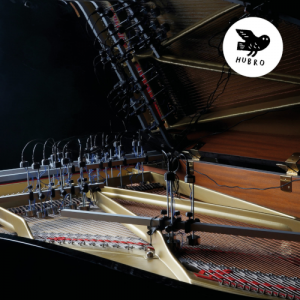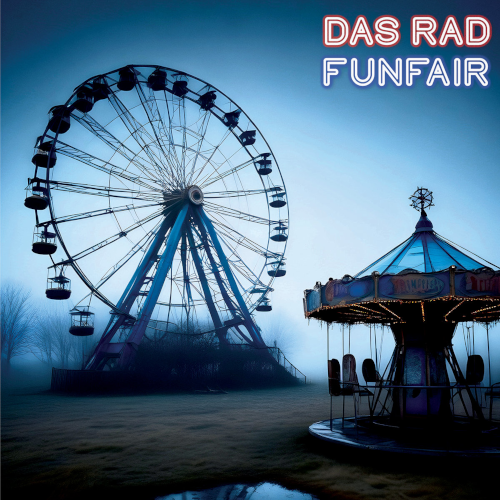 Musician and instrument builder Jo David Meyer Lysne seems to have a fascination with producing tones by adjusting or adding to already existing instruments.
Musician and instrument builder Jo David Meyer Lysne seems to have a fascination with producing tones by adjusting or adding to already existing instruments.
After his album Spektralmaskin with Peder Simonsen, where he used self-designed e-bows to produce random harmonics on guitars, he has turned his attention to the piano and has produced his own take on the player piano. Adding electronic magnets attached to steel bars, one for each key, the instrument produces vibrations as the magnets affect the strings and it is from these these extraordinary tones that For Renstemt Klaver is rendered.
The album is a suite of seven pieces; each one is a different harmonic and mechanical exploration, but they all share a sense of sepulchral warmth that, even though they move slowly, are insinuating in their hypnotic quality.The vibrato in the first section hangs in the air as the sounds die away and it caresses the ear like a gentle pipe organ. There is the slightest ring of tension in the odd note, but that subsides and leaves you unsure as to whether you really heard it; and others are just left to drift for seconds before being joined by a sympathetic partner.
The gaps between notes seem to linger longer in sections II and III and you really hear feel the room as the sounds decay. There is more of a metallic tone here, as if somebody were bowing the edge of a vibraphone. As the album progresses, the deeper tones are encircled by something lighter that revolves almost like a slow kaleidoscope. It is an intense and engrossing listen, with section IV sharing some tonal qualities with steel pans that throb with an unknown force. As the end nears, so the tones feel more distant with just a touch of discord to keep the listener fully engaged; until section VII where the contemplative melancholy draws further away, stripping an already minimal sound even further down until the soporific sensation draws to an all-too-early conclusion.For Renstemt Klaver is one of those albums that would be welcome to drift on for hours; but I guess we should be grateful that we have this small portion to immerse ourselves in.
-Mr Olivetti-



